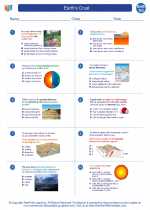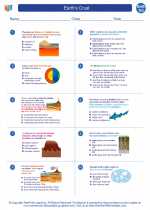Integumentary System
The integumentary system is the organ system that protects the body from various kinds of damage, such as loss of water or abrasion from outside. It is composed of the skin and its appendages including hair, nails, sweat glands, and sebaceous glands.
Structure of the Integumentary System
The integumentary system consists of the following main components:
- Skin: The largest organ of the body, serving as a protective barrier between the internal and external environment.
- Hair: Helps to protect the body from external elements and regulate body temperature.
- Nails: Protect the tips of the fingers and toes and enhance fine touch.
- Sweat Glands: Produce sweat, which helps regulate body temperature and excrete waste products.
- Sebaceous Glands: Produce sebum, an oily substance that lubricates and protects the skin and hair.
Functions of the Integumentary System
The integumentary system serves several important functions:
- Protection: The skin acts as a barrier against physical, chemical, and biological assaults.
- Thermoregulation: The integumentary system helps regulate body temperature through processes such as sweating and shivering.
- Sensation: The skin contains sensory receptors that detect touch, pressure, temperature, and pain.
- Excretion: Sweat glands excrete waste products, such as salts and urea, from the body.
- Synthesis of Vitamin D: The skin is involved in the production of vitamin D when exposed to ultraviolet light.
Common Disorders of the Integumentary System
Some common disorders of the integumentary system include:
- Acne: A skin condition characterized by the presence of pimples or "zits."
- Eczema: A group of conditions that cause the skin to become inflamed or irritated.
- Psoriasis: A chronic autoimmune condition that causes the rapid buildup of skin cells, resulting in scales and red patches.
- Skin Cancer: The abnormal growth of skin cells, often caused by exposure to ultraviolet radiation from the sun.
Study Guide
When studying the integumentary system, it is important to focus on the following key points:
- Understand the structure and functions of the skin, hair, nails, sweat glands, and sebaceous glands.
- Learn the role of the integumentary system in protection, thermoregulation, sensation, excretion, and vitamin D synthesis.
- Be able to identify and describe common disorders of the integumentary system, including their causes and symptoms.
- Explore the impact of lifestyle choices, such as sun exposure and skincare practices, on the health of the integumentary system.
By mastering these concepts, you will develop a comprehensive understanding of the integumentary system and its significance in maintaining overall health and well-being.
[Integumentary System] Related Worksheets and Study Guides:
.◂Earth Science Worksheets and Study Guides High School. Earth's Crust
Worksheet/Answer key Earths Crust
Earths Crust  Worksheet/Answer key
Worksheet/Answer key Earths Crust
Earths Crust  Worksheet/Answer key
Worksheet/Answer key Earths Crust
Earths Crust  Vocabulary/Answer key
Vocabulary/Answer key Earths Crust
Earths Crust  Vocabulary/Answer key
Vocabulary/Answer key Earths Crust
Earths Crust  Vocabulary/Answer key
Vocabulary/Answer key Earths Crust
Earths Crust 

 Worksheet/Answer key
Worksheet/Answer key
 Worksheet/Answer key
Worksheet/Answer key
 Vocabulary/Answer key
Vocabulary/Answer key
 Vocabulary/Answer key
Vocabulary/Answer key
 Vocabulary/Answer key
Vocabulary/Answer key

The resources above cover the following skills:
Earth Science
History of Earth
Develop a model to illustrate how Earth’s internal and surface processes operate at different spatial and temporal scales to form continental and ocean-floor features.
Earth Science
History of Earth
Develop a model to illustrate how Earth’s internal and surface processes operate at different spatial and temporal scales to form continental and ocean-floor features.
Earth Science
History of Earth
Develop a model to illustrate how Earth’s internal and surface processes operate at different spatial and temporal scales to form continental and ocean-floor features.
Earth Science
History of Earth
Develop a model to illustrate how Earth’s internal and surface processes operate at different spatial and temporal scales to form continental and ocean-floor features.